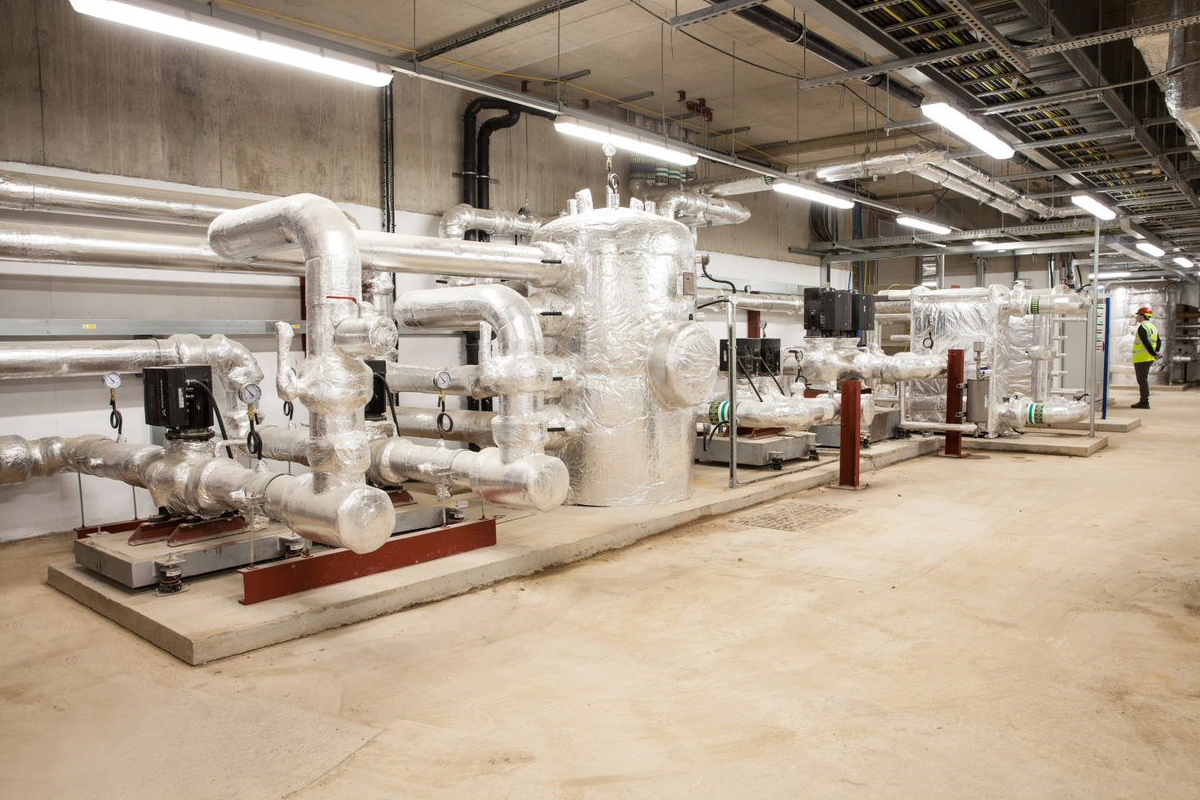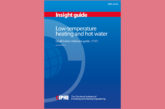
The Chartered Institute of Plumbing and Heating Engineering (CIPHE) members each have a unique story. We talked to David Gammage Eng Tech MCIPHE RP RHP about his experience in the sector and what quality means to him.
What is your background? Can you tell us about your career journey to date?
I’ve been in the plumbing and heating industry for 22 years, starting out as an apprentice at 16 in 2000. My apprenticeship training was based at Croydon college one day per week and the remaining four days were spent working with my father, a qualified plumbing and heating engineer. This experience allowed me to achieve an NVQ Level 2 & 3 in Mechanical Engineering Services as well as pass my ACS exam. Through this, I could register for gas accreditation which was called Corgi at the time.
After 12 years, I began working for Watkins Plumbing Ltd as a customer care engineer. I then moved into the maintenance division. My day-to-day involved Planned Preventative Maintenance (PPM), rectifying breakdowns and servicing of commercial gas systems.
I now hold the position of Quality Assurance Supervisor which I was promoted into around 12 months ago. This role involves overseeing all aspects of quality assurance throughout the company. As the appointed person for domestic and non-domestic gas operation, I am also responsible for internal auditing, training and company policies.
Why is quality work so important in your field?
I primarily work in the new build sector, which involves high-end residential properties such as multi-floor flats and conventional housing types, through to educational institutions. New build developments tend to come with a stigma around the quality of products being used. This can be particularly challenging in the current age of social media, as negative views on an individual or business can easily and rapidly spread. That is why the quality of work being completed on behalf of the business needs to be of a high standard. Not only will this significantly reduce the risk of future defects and associated costs, but it also goes towards building a company’s reputation in a positive way.
Why is having a CIPHE membership important in regard to quality?
Having a CIPHE membership is like a badge of honour for me. To become a member, we commit to being governed by the Code of Professional Standards which shows that we agree to act professionally, competently, and responsibly. As such, maintaining high standards is key and ongoing competency is also crucial. By keeping abreast of the changes in the industry this gives customers confidence to know that, if they use a registered CIPHE individual or business, they will receive a high quality of work which is undertaken competently in line with best practice.
What are your views on the rogue traders that continue to operate, and the impact they are having on the heating and plumbing industry?
When a customer encounters a rogue trader, they could be left thousands of pounds out of pocket trying to put the work right. It’s not only saddening that rogue traders continue to operate with no regard for public safety, but it’s frustrating committing to professional development when the unscrupulous few damage our industry’s reputation. This why I believe it is so important for an organisation such as the CIPHE to be at the forefront of our industry, raising and promoting high standards.
How is the industry changing? What new opportunities have emerged/are on the horizon?
More projects are moving away from conventional fossil fuel burning appliances – such as boilers and combined heat and power units – and are replacing them with technologies such as commercial heat pumps. Likewise, we are seeing a shift from conventional chemically treated systems to “chemical free” systems with treatment that works to a VDI 2035 standard.
With the roll out of heat pumps and low temperature systems underway, it is great to see the CIPHE, LCL Awards and Heat Pump Association addressing skills with the new Low Temperature Heating and Hot Water System in Dwellings Course. As a gas engineer myself, I’m excited to see how the hydrogen roll out will evolve over the next 10 years. I personally believe a mixture of technologies will be required, rather than a single method.












